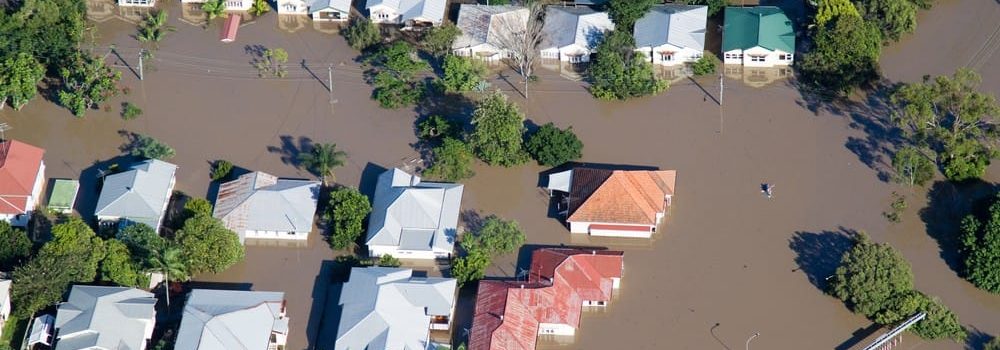Do I Have To Buy Flood Insurance In Miami?

Miami is a coastal city. Its highest point is only 42 feet above sea level, with an average elevation of 6 feet. Not only that, out of a total size of 56 square miles, 20 of those are water. That means there are plenty of flood risks around. Even in periods of hard rain, rising water could accumulate quickly. How can you protect your home? Is flood insurance required?
Given the risks of flooding in the area, many Miami residents have to buy flood insurance for their properties. Coverage requirements don’t exist to burden you with extra costs. They seek to protect you and others in times of flooding.
Flood Insurance
When you buy a house, you usually must buy homeowners insurance. This coverage protects your property and possessions in the event of damaging occurrences — such as fires or vandalism.
However, most homeowners policies will not insure flooding. So, if flash flooding, river swells or storm surge — all frequent events in Miami — occur, then you might not have coverage for the damage unless you have flood insurance.
The flood insurance market is a regulated industry. The U.S. government’s National Flood Insurance Program (NFIP) supplies most policies through various providers, and tightly controls policy rules. Policies will provide structure and contents insurance, along with other protection.
Coverage Rules In Miami
Not only does the NFIP regulate flood policies, but it also sets rules regarding who must buy coverage.
Namely, it allows mortgage lenders to require residents of flood zones to buy coverage. Around 40% of Miami properties sit in floodplains. These properties face high risks of flooding. As a result, if you plan to buy one of these properties, you must likely buy flood insurance.
Why Might Coverage Be Required?
If a mortgage lender gives you money to buy your home, they expect repayment of the loan. Therefore, they have an interest in the property. If anything happens to it, then the lender could also stand to lose out on their investment. The requirement for you to buy flood insurance will better guarantee that you protect your financial duty to the lender.
When you start planning to buy a property, talk to your realtor about whether the home sits in a flood zone. Most will disclose this to you and give you time to prepare if you need flood insurance.
After you settle in the home, you can also often make improvements and take precautions to prevent flooding altogether.
